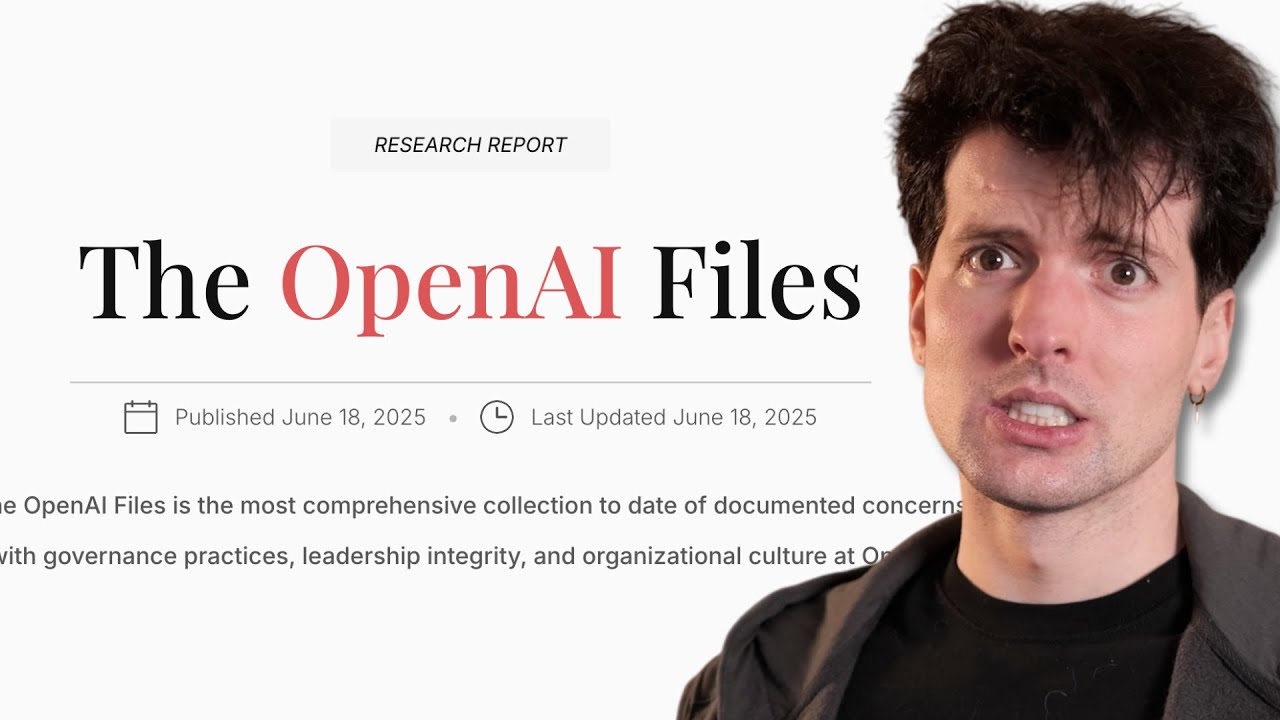The video critically examines the “OpenAI Files” allegations against Sam Altman and OpenAI, finding most claims to be exaggerated, misleading, or based on misunderstandings rather than evidence of wrongdoing. It emphasizes the importance of scrutinizing such reports carefully, concluding that while OpenAI has imperfections, the controversy is largely overblown and the company remains committed to responsible AI development.
The video provides a detailed analysis and fact-checking of the recently released “OpenAI Files,” which contain numerous accusations against OpenAI and its CEO, Sam Altman. The narrator, who has insider experience in the AI and startup ecosystem, approaches the claims with skepticism and a nuanced perspective. He finds that most allegations are either exaggerated, misleading, or outright false, often stemming from misunderstandings or biased sources. Despite not being an OpenAI supporter, the narrator emphasizes the importance of critically examining such reports rather than accepting them at face value.
One major claim discussed is that Sam Altman falsely listed himself as Y Combinator chairman in SEC filings. The narrator explains that while this is a serious clerical error, it likely resulted from miscommunication during Altman’s transition from Y Combinator to focusing on OpenAI. The complexity of legal filings and internal disagreements at Y Combinator contributed to this mistake, which has since been resolved. This example sets the tone for many other claims that appear more like administrative errors or internal conflicts rather than intentional wrongdoing.
The video also addresses concerns about OpenAI’s shift from a nonprofit to a capped-profit model, highlighting that while the change may seem contradictory to OpenAI’s original mission, it is a pragmatic move to secure necessary funding and compete in the AI industry. The narrator points out that OpenAI has been transparent about this transition and that similar companies operate under more traditional for-profit models. Other accusations, such as Altman’s indirect equity stakes, alleged collusion with companies he invested in, and restrictive employee agreements, are examined and largely debunked or contextualized as common business practices or misunderstandings.
Several personal criticisms of Altman’s leadership style and past behavior are also scrutinized. The narrator notes that some negative feedback comes from former employees or competitors with vested interests, which may bias their statements. He highlights instances where Altman took responsibility for mistakes, such as problematic employee agreements, and worked to rectify them, demonstrating accountability. The video stresses that many of the more sensational claims lack credible evidence or have been addressed internally, reducing their impact.
In conclusion, the narrator finds that the “OpenAI Files” do not reveal any substantial or new wrongdoing by Sam Altman or OpenAI. Instead, the report appears to be a collection of rumors, outdated information, and biased interpretations. While OpenAI is not without flaws, the video encourages viewers to approach such exposés critically and not be swayed by volume or sensationalism alone. The narrator’s insider perspective and thorough breakdown suggest that much of the controversy is overblown and that OpenAI continues to operate with a focus on advancing AI responsibly.
